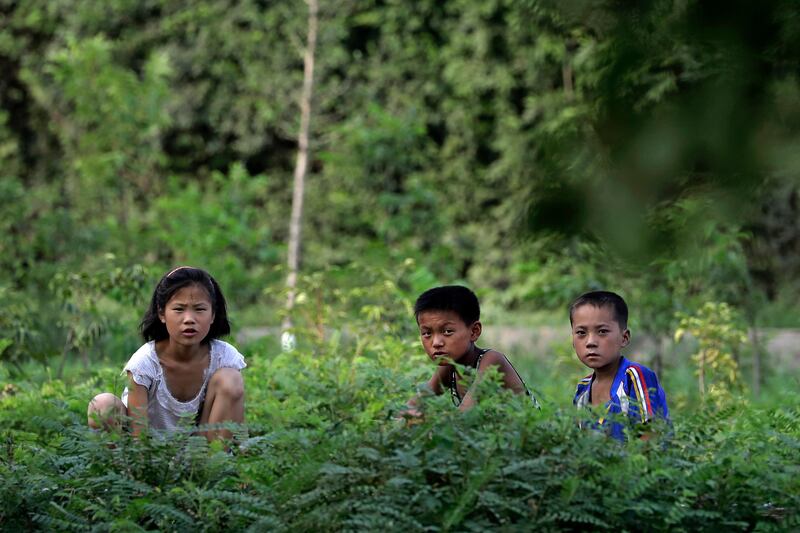North Korea is facing severe food shortages after being hit by its worst drought in more than 15 years, the UN said, calling for urgent food imports to stop children going hungry.
A severe lack of rainfall in the first half of this year has badly damaged vital harvests in a country where malnutrition is already widespread, according to the report by the UN's Food and Agriculture Organisation.
Seasonal rainfall has dropped below 2001 levels and could cause "a sharp deterioration in food security conditions of a large part of the population", said Vincent Martin, the FAO representative in China and North Korea.
"Immediate interventions are needed to support affected farmers and prevent undesirable coping strategies for the most vulnerable, such as reducing daily food intakes," Mr Martin added.
The North has periodically been hit by famine in recent decades, with hundreds of thousands of people dying in the mid-to-late 1990s during a period known in the country as the Arduous March.
Even in good years, more than 40 per cent of the population is categorised by the UN as undernourished.
But rainfall in the first half of this year has been far below the levels of 2001, when a particularly bad drought reduced the country's cereal production to hit unprecedented lows.
In some key agricultural provinces, rainfall from April to June was 50 per cent below average.
Mismanagement is widely blamed for food shortages in the impoverished country, while critics point to the nation's vast expenditure on its nuclear and missile programmes, at the cost of investment in agriculture.
International food aid, especially from South Korea and the United States, has been cut drastically over the past decade amid increasing tensions over the weapons programmes.
Frequent floods and droughts, as well as a lack of quality soil, seeds, fertiliser and equipment, are also to blame.
The FAO, which maintains a permanent office in North Korea, said that more than 50,000 hectares of farmland have been severely affected by this year's prolonged dry spell, particularly crops of rice, maize, potatoes and soybean.
Production of early season crops has plunged by more than 30 per cent, from the 450,000 tonnes last year to 310,000 tonnes this year, the FAO said.
Women, children and the elderly are particularly vulnerable to food shortages, with malnutrition a major cause of maternal and child mortality. Some 28 per cent of North Korean children under the age of five are stunted.





